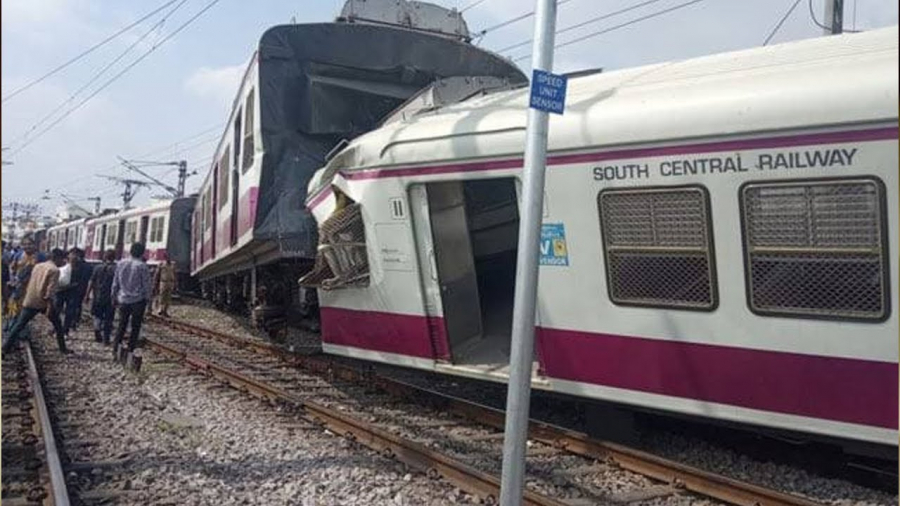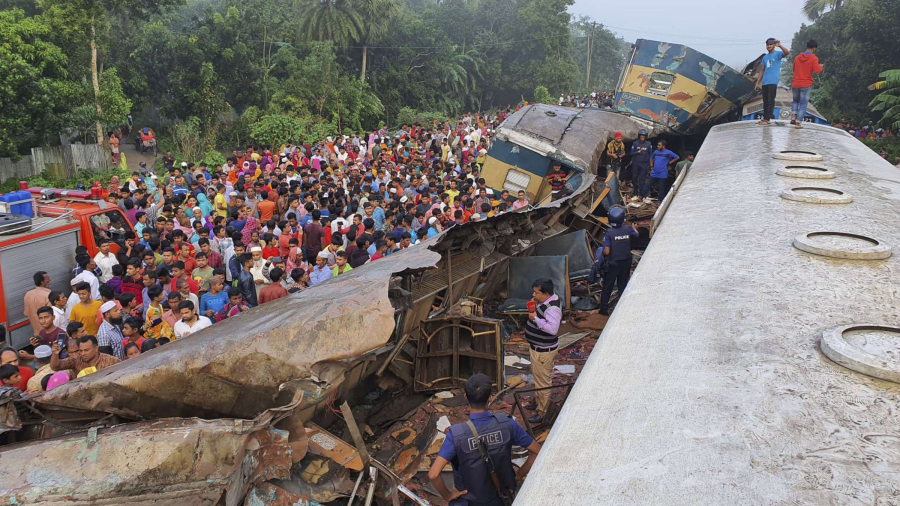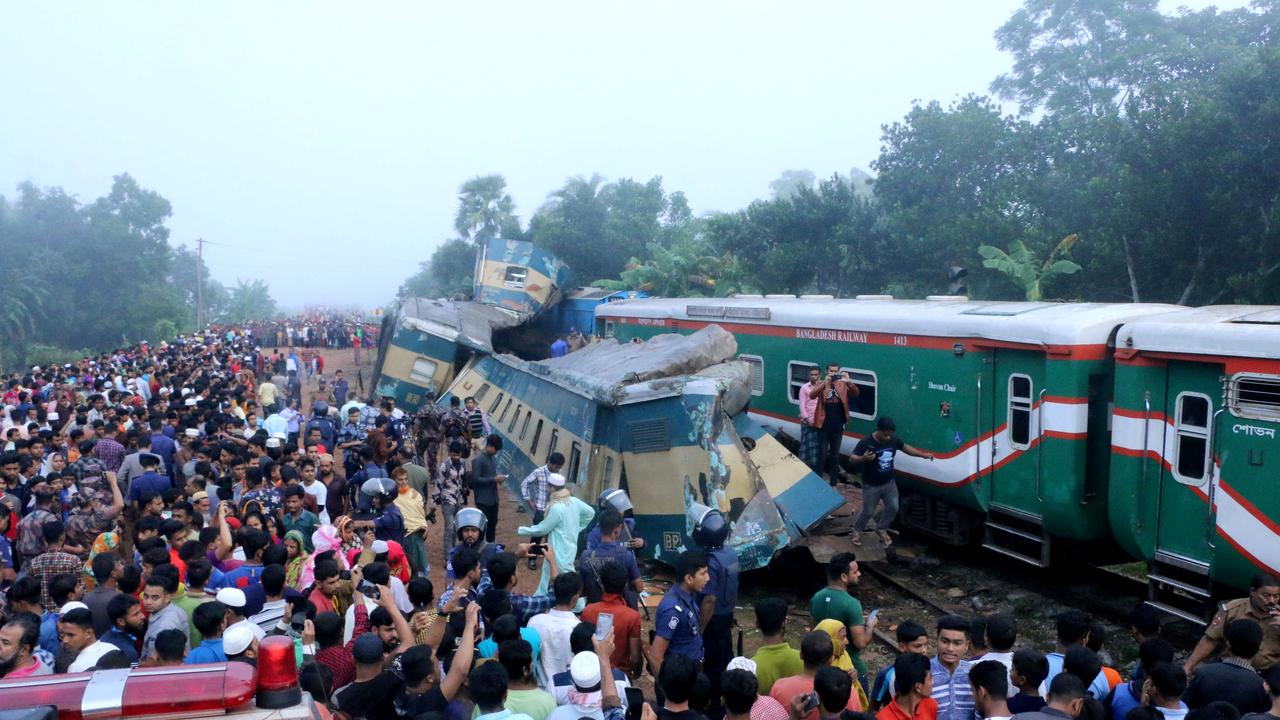A head-on collision between two trains at Kacheguda station in Hyderabad (Telangana state, southern India) left at least six people injured, with many others panicking and jumping out of the trains to escape. Fortunately, both trains were traveling at slow speeds at the time of the accident, minimizing the consequences.
Officials said the accident was caused by a technical malfunction; however, initial investigations suggest the train driver failed to see the stop signal and continued operating the vehicle as another train entered the station.
The injured, including the train driver, were quickly given first aid and taken to the hospital. Initial investigations indicate that the accident was caused by a malfunction in the signal system.
Authorities have now officially launched an investigation into this accident.

The scene of the two trains colliding in Hyderabad on November 11th.
By early morning on November 12, at least 16 people had died and more than 60 others were injured when two passenger trains collided head-on on the same track in Brahmanbaria district, 100 km east of Bangladesh's capital Dhaka.
Rescue workers are still searching for survivors in the wreckage. The death toll is likely to rise as many injured people remain trapped in the train carriages.
Two trains collided just outside Mondobhag station at 3:00 a.m. (local time), when theoretically one train should have moved to the bypass lane. One train was traveling from Sylhet, a city in eastern Bangladesh, to the southern coastal city of Chittagong, while the other was traveling in the opposite direction, from Chittagong to the capital Dhaka. Most passengers were asleep when the accident occurred.
An investigation has now been launched to determine why the two trains were traveling on the same track.

The scene of the two trains colliding in Brahmanbaria district on November 12.
Railway accidents are extremely common in India and Bangladesh, where the track and locomotive systems are outdated, and level crossings lack warning systems.

 VI
VI EN
EN

































